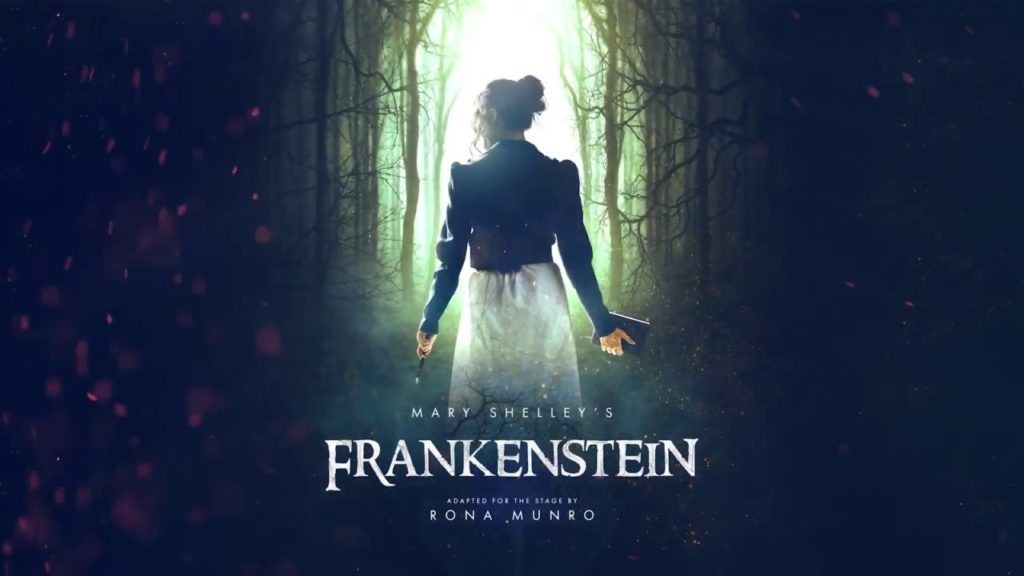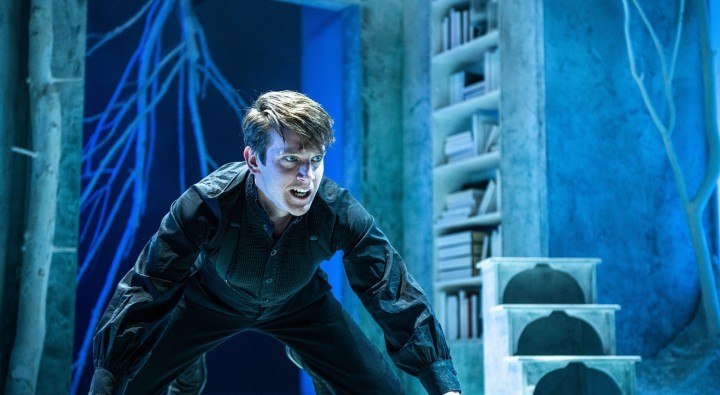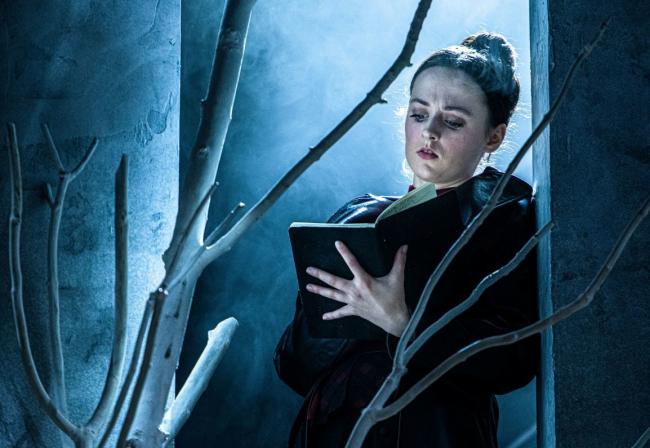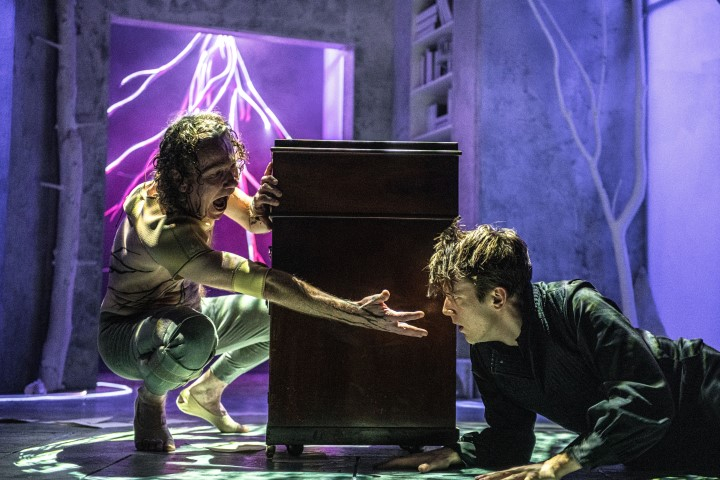
 (5 / 5)
(5 / 5)
Prometheus reborn.
This is an ambitious premise. Take a story that has passed into classic status, that has been reworked countless times in serious and spoof form, that has universal recognition and that has spawned endless clones and then strip it back to its original story line and portray it through the eyes of its creator. Would it work? Can it fulfil that lofty aim?
I have to say I thoroughly enjoyed this production at Theatr Clwyd. I heard it said that it was a verbose script with a lot of shouting and that the lead playing Mary Shelley was too in your face, but to me this was absorbing, thought provoking theatre that retold the story and yet picked out the social context admirably.

At times it is not comfortable viewing, it was intended as a horror story and developed a threatening, suspense filled atmosphere without attempting to shock for the sake of it. The set and lighting was highly effective, with an almost black and white backdrop yet with a clever use of height that allowed you to see the story and then see the thought process of the author side by side.
It was this use of the author that allowed the social context and Promethean nature of the story to breathe. Especially during the second act, you saw her dictating the nature of the story to drive home the point that she wanted to make. In that sense the play was as much about her as it was Frankenstein and his monster. She was a remarkable author. She was an 18 year old recently married woman who had suffered considerable personal tragedy when this was written. She was actively involved in events that fermented the social revolution that was taking place in the early 19th Century and the play reflects that clamour for change. She then became the fulfilment of some of her mother, Mary Wollstonecraft’s desires when as an independent, self-supporting woman, developed her own career while supporting other members of her family.

She developed themes of throwing off traditional rule and transforming society through scientific revolution, yet knowing that unfettered scientific investigation can take things too far. The book served as an illustration of the conflict between a traditional way of life, the challenge of science and the interdependence of different branches of knowledge, such that Science without Religion is ignorant. Religion without Science is blind.
Most strikingly to me though was Shelley’s insistence that what people need is love, compassion and some companionship and if you deny people these basic needs you are playing with fire.
It is the stated intention of the playwright, Rona Munro to draw us back to the life of Mary Shelley, and she accomplishes this really well. Mary is played with huge emotion by Eilidh Loan yet this portrayal does not compromise the telling of Frankenstein’s story. This is told faithfully and the two male leads, Frankenstein (Ben Castle Gibb on his professional debut) and the monster (Michael Morland) bring out the optimism, despair and tragedy of this striking story pointedly.

To me this is a carefully crafted, multi-layered and thought provoking piece of theatre. It is intense and at times bleak. There is also much pathos that reflects on today’s society. The chief desire of the monster is to be loved, appreciated and understood. When he fails to find those qualities directed towards him, his nature is transformed to match his hideous appearance. Therein lies a paradigm that speaks volumes to our society. So often we fail to appreciate those amongst us who we describe as ‘other’ and Shelley comments, neglect ‘others’ at our peril. It is no wonder that this story has been retold so many times and it is great to see a production that remains modern yet takes us back to Shelley’s original ideas.
Go and see Frankenstein and prepare to be surprised. Even shocked!
